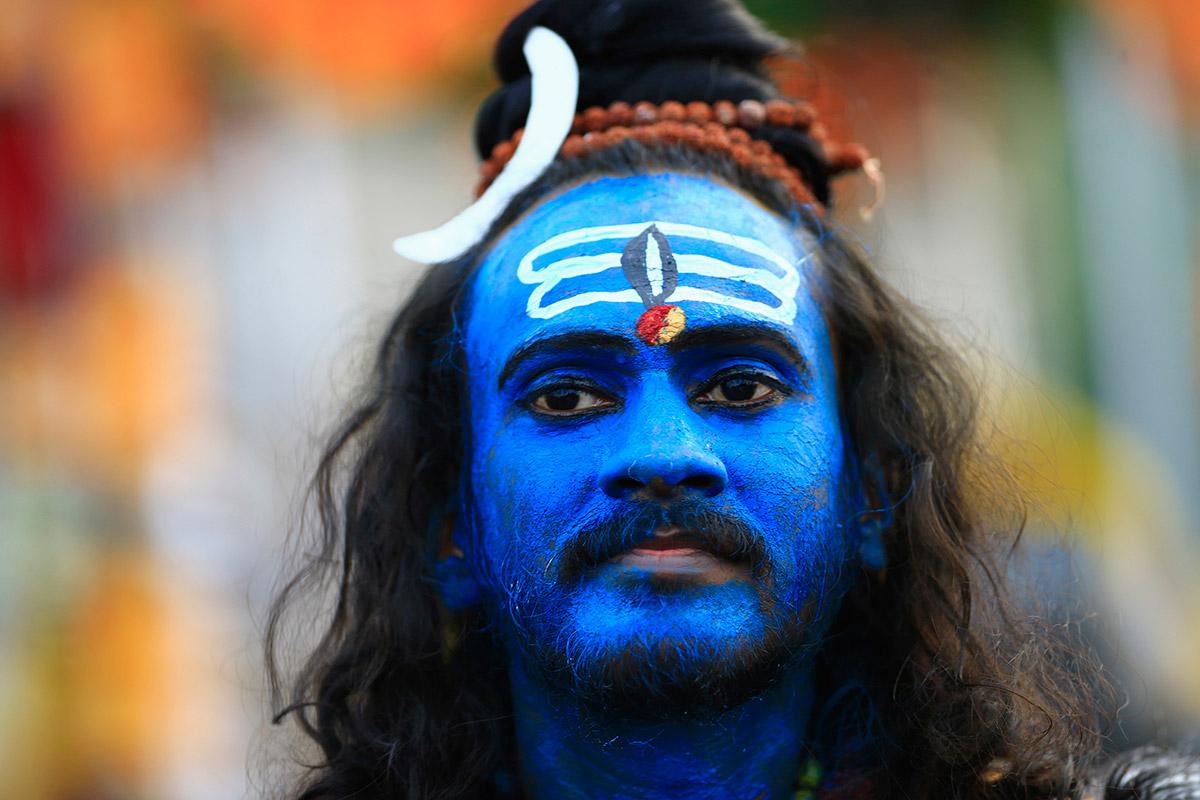By Editorial Staff

Hinduism in its essence is not a missionary religion.
Some Hindu groups in India began attempts to convert some poor Muslims and followers of some other faiths to Hinduism. Pamphlets were distributed by Hindu organizations calling people to donate generously in order to spend in the implementation of gharwapsi or conversion program.
There has been a great attention in the political and religious circles in India during the past weeks about Forced Conversion to Hinduism. Perhaps, members of these Hindu organizations think that they will succeed in this mission like predecessor Muslim preachers who succeeded in inviting Hindus to Islam.
I would like to highlight the reasons and motives that led to the success of Muslim preachers since their advent in the Indian subcontinent in the light of historical accounts on Islamic Da`wah in India. In addition, this article will compare the attempts of these Hindu organizations for the conversion of some poor Muslim families to Hinduism by allurements, promises and threatens with the success of Islamic Da`wah in the past and present.
In the light of Hindu faith system, such endeavors by Hindu movements may continue as long as there is money, power and enthusiasm in the Hindu activists, but they will fail sooner or later, rather, these activities will lead to the sectarian conflict and will spoil the national unity of India. This conclusion is based on the following reasons:
First: The history of Hindu philosophy is totally void of the concept of Da`wah and Hindu religious sources do not give any notion or idea on Da`wah. However, we find the idea of Da`wah, its principles, rules and regulations well-detailed in a comprehensive and perfect manner in the basic Islamic sources. This is a big difference between Islam and Hinduism regarding calling others to the religion.
Second: The Hindu religion includes strange beliefs, pagan rituals and detested practices that contradict even plain reason and clear logic. See, for example, the worship of the tortoise, snake, idols and cow. Also, the Hindus believe in the purity of cow dung and cow urine; rather they regard them sacred and they drink cow urine as a blessing drink. Such beliefs and ideas are enough to alienate people from Hinduism. How can a Muslim accept such beliefs and practice such religious practices after he has believed in the pure doctrine system of Islam and performed the five prayers of Islam with pure body, mind and heart?
Third:The Hindu religion is based on the caste system since the ancient ages that differentiates between people in dignity and respect making some people higher and nobler than others based on their race and origin. According to Hinduism, an ignorant and foolish Brahman is higher and nobler than an educated and righteous Shudra on the basis of their family origin. A person from outcasts or untouchables is not allowed to enter the temple of Brahmans and a Shudra cannot sit parallel to a member of the upper castes.
The question is if a person from outcasts converts to Hinduism, how can you allow him to recite Vedas that are prohibited for outcasts or untouchables?While there are some harsh punishments for a shudra if he dares to recite the sacred Hindu scriptures as was prescribed in Manushastr.
Fourth: It was unveiled recently that many Hindu holy men and religious or spiritual leaders were involved in financial, moral and sexual corruption cases who were regarded as gods and Avtar by their Hindu followers, and were arrested by the Indian police and were put behind bars after many complaints against them. Therefore, public confidence in the Hindu religion has declined and no one wants to convert to Hinduism willingly.
Fifth: Hinduism does not have prescribed, fixed and obligatory worship system as we find in Islam, such as the daily obligatory five prayers, Friday prayer and the prayers of two yearly Islamic festivals; `Eid Al-Fitr and `Eid Al-Adha. I think that people of our modern time are open-minded, enlightened and aware and no aware person can leave the religion of monotheism and will accept the ritual and worship of snake, reverence of private part of the male and female, fire, animal and nature.
Sixth: Hinduism has many religious sects, divisions and conflicting communities; every one of them has its own belief system and religious practices that make them rival and divergent among themselves. The presence of such conflicting sects alongside the absence of religious reliable source in Hindu society is a strong evidence for the failure of efforts rendered by the Hindu organizations in forced conversion of some weak and poor Muslims in India.
Seventh: We find paganism pervasive in Hinduism since the distant past. The present Hindu scriptures cannot be an authority on the matter of belief, because, they were subjected to addition and subtraction, as well as it is disputed whether the Hindu scriptures were divine or were written by Hindu Rishis and spiritual personalities over the history.
There are many disputes in Hinduism about the Creator. Who is the Creator of the world? Is it Brahma? Is it the nature? Is it Maya? It is also ambiguous whether Hinduism is originally based on monotheism or polytheism? All these important and basic principles are shrouded in ambiguity and doubts. These negatives are clear signs for the failure of (GharWapsi) or conversion program by Hindu organizations.
Eighth: Efforts of these organizations are based on the material enticements for the ordinary, poor and illiterate people who do not know anything about Islam and who revolve around their daily livelihood and bread. On the contrary, we find a lot of educated and affluent people from the Hindus and other religions who study Islam and become convinced with Islamic message and then convert to Islam even the number of such enlightened people exceeds our expectation. (For more information on this subject, please, click here.)
Ninth: The activists of forced conversion are covetous politicians who never can reach the level of sincerity, purity, piety and transparency of the Muslim preachers of the past and present. The greed and hunger of money and fame have been exposed and a number of Hindu leaders and spiritual mentors were arrested in recent times because of their corrupt behavior.
Tenth: Such movements appeared in the last century in the name Shuddhi but they failed, and the same is expected for these Hindu movements because they are based on the force and material charm.
Eleventh: These Hindu movements do not have a clear vision for the invitation or conversion as the Hindu scriptures do not present any concept of Da`wah, there is no rule and regulation of Da`wah with these Hindu movements. I think these Hindu movements can not give any reference or practical example for their activity from their sacred scriptures.
The nature of Hinduism is more resembling to a philosophy system than a divine religion. Is conversion to Hinduism a permissible act? Is forced conversion a forbidden practice in the light of Hindu religious texts? I think that there is no rule in Hinduism in this section. While we find in the Glorious Qur’an and blessed Sunnah full details on all these basic points.
Twelfth: Those Hindu movements emerged as a reaction of the Islamic Da`wahin India and the reaction does not last long, its nature is to dwindle quickly because it does not have self-power, rather, it has some kind of borrowed and temporary power. However, the strength of Islamic Da`wah stems from the teachings of the Glorious Qur’an and the blessed Sunnah.
This brief article does not allow listing all proofs and evidences but they have been mentioned in the concerned books with convincing and extensive detail.
Anyway, the question arises here; how was Islamic Da`wah successful in the world throughout the ages? What are the reasons and motives that led to the success of Islamic Da`wah in many countries of the world, especially in the Indian sub-continent through its long history? We are going to outline the answer in the coming part of this article.
[opic_orginalurl]


